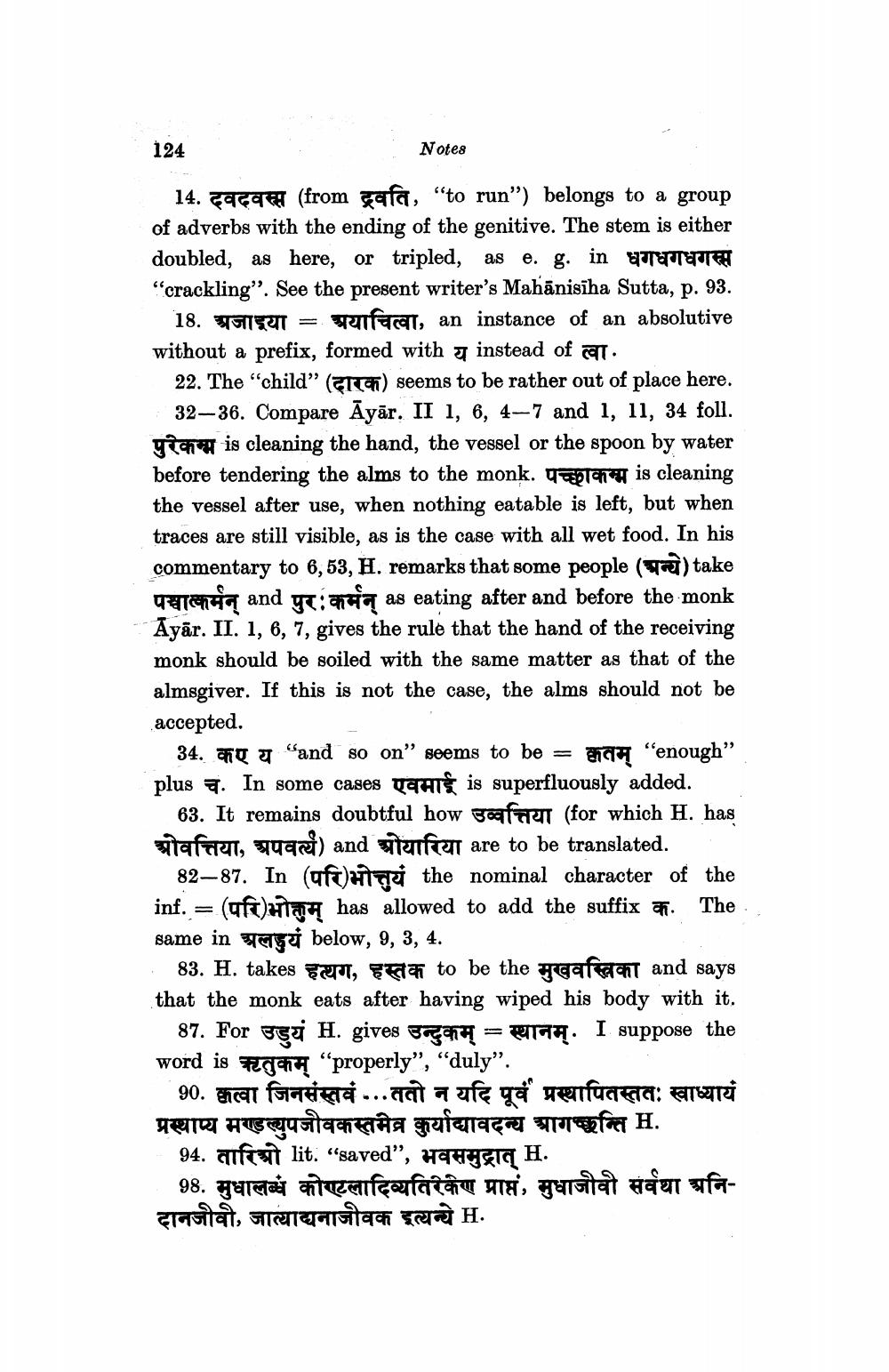________________
124
Notes
14. Faça (from afa, “to run”) belongs to a group of adverbs with the ending of the genitive. The stem is either doubled, as here, or tripled, as e. g. in ur "crackling". See the present writer's Mahānisīha Sutta, p. 93.
18. TESUT = perfecal, an instance of an absolutive without a prefix, formed with y instead of ca.
22. The "child” (CTC) seems to be rather out of place here.
32–36. Compare Āyār. II 1, 6, 4—7 and 1, 11, 34 foll. yra is cleaning the hand, the vessel or the spoon by water before tendering the alms to the monk. Dan is cleaning the vessel after use, when nothing eatable is left, but when traces are still visible, as is the case with all wet food. In his commentary to 6,53, H. remarks that some people (a) take पश्चात्कर्मन् and पुरःकर्मन as eating after and before the monk Ayār. II. 1, 6, 7, gives the rule that the hand of the receiving monk should be soiled with the same matter as that of the almsgiver. If this is not the case, the alms should not be accepted.
34. Q u "and so on” seems to be = "enough” plus 7. In some cases TEHS is superfluously added.
63. It remains doubtful how seafaret (for which H. has taforeni, quap) and stufer are to be translated.
82—87. In (aft)ate the nominal character of the inf. = (परि)भोक्तम् has allowed to add the suffix क. The same in age below, 9, 3, 4. .. 83. H. takes हत्थग, हस्तक to be the मुखवस्त्रिका and says that the monk eats after having wiped his body with it.
87. For उडुयं H. gives उन्दुकम् = स्थानम् . I suppose the word is pgai “properly", "duly”. ___90. कृत्वा जिनसंस्तवं ...ततो न यदि पूर्व प्रस्थापितस्ततः स्वाध्यायं प्रस्थाप्य मण्डल्युपजीवकस्तमेव कुर्याद्यावदन्य आगच्छन्ति H. 94. diftet lit. "saved”,
H ra H. 98. मुधालब्ध कोण्टलादिव्यतिरेकेण प्राप्त, मुधाजीवो सर्वथा अनिदानजीवी, जात्याद्यनाजीवक इत्यन्ये H.




